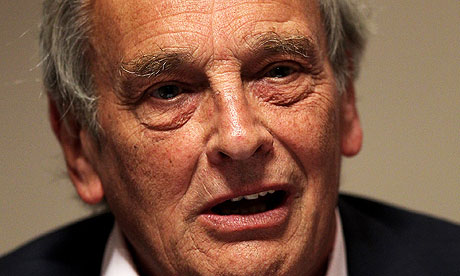
The Rugby Football Union's board of directors has been warned that unless it removes Martyn Thomas as acting chief executive at a meeting next Wednesday, clubs will the following day call a special general meeting, at which a motion of no confidence in Thomas will be proposed.
Paul Murphy, the board chairman, has been shown 130 letters from clubs, calling for the SGM. He was urged to persuade the directors that to retain Thomas would paralyse governance at Twickenham into the new year. Some of the directors are angry at the way key decisions, such as appointing the former England prop Fran Cotton to conduct a review of the national coaching set-up, were taken without reference to them.
There is concern that unless the directors act decisively, there will be dire consequences. The South Africa Rugby Union is looking to milk the political upheaval at Twickenham by guaranteeing the International Rugby Board £120m if it switches the hosting rights for the 2015 World Cup, which is being staged in England. The RFU is guaranteeing the IRB £80m.
Saru's cheeky intervention is highly unlikely to succeed, but it will ensure that the RFU board monitors events closely. Earlier this month it was asked by the Australian Rugby Union's chief executive, John O'Neill, to satisfy itself that the political mess at Twickenham would not have an impact on planning for the 2015 World Cup.
The board has supported Thomas, who has survived two votes of no confidence at meetings of the RFU council, but his decision to ask Cotton to conduct his review without putting the idea to a board meeting, let alone consulting the Professional Game Board, has alienated some members. There will be a proposal on Wednesday to wind up the Cotton inquiry, which does not have the support of the Rugby Players Association or Premiership Rugby, the partners of the RFU on the PGB. In addition, players are refusing to co-operate with an investigation into alleged breaches of discipline during the World Cup which is being conducted by the RFU's legal chief, Karena Vleck.
"The bottom line is that Thomas has to go, not just as acting chief executive but as an RFU member of the IRB and the Six Nations," said one RFU member. "Given what has gone on, he should also be made to stand down as chairman of Rugby World Cup 2015. Paul Murphy has been left in no doubt about that and it is up to the board to take the right decision."
Council members are angry that the RFU president, Willie Wildash, rejected calls to hold an emergency meeting this week. They have been asked to ratify the appointment of two independent directors to the board, Miles Templeman and Andrew Higginson, by email, with a deadline of Monday. That means the pair could be asked to attend Wednesday's meeting if they are elected.
If Thomas were removed as acting chief executive, he would lose his place on the council as well as the board, because he gave up the chairmanship last July. He would have to surrender his IRB and Six Nations posts, as there is no vacancy for a co-opted member on the board, leaving the directors to decide whether he should next year become the chair of RWC 2015, which has a proposed salary of £150,000.
The board has acquired a number of new faces since the summer, when it backed Thomas's call to sack the then chief executive, John Steele. Some of the old guard are facing challenges in their constituencies for supporting Thomas, who is believed to have been considering putting his name forward for the full-time position.
The council will next meet on 2 December, when the law firm Slaughter and May will present a report on the corporate governance and structures of the RFU, looking in particular at the relationship between the board and the council.

